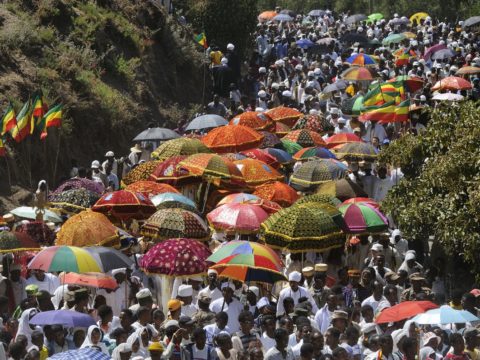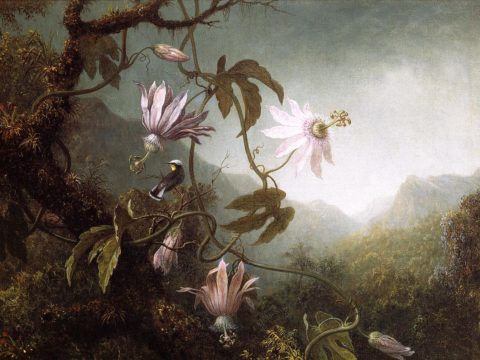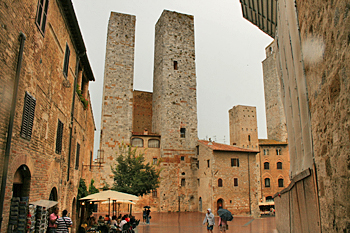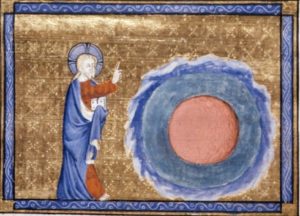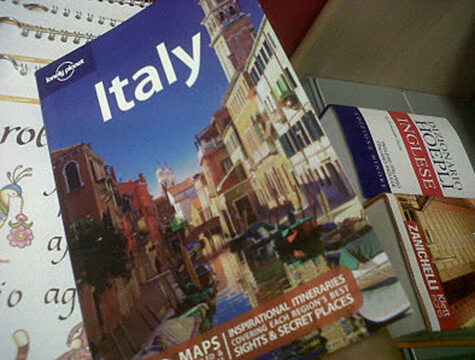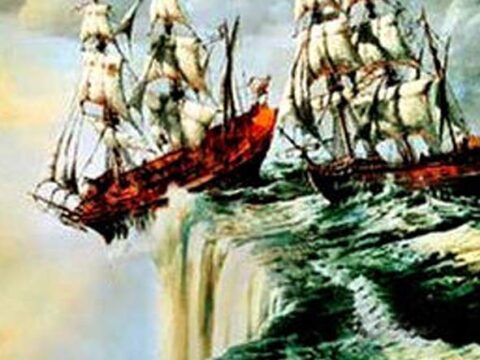The pilgrimage tour continues today. The most popular continues to be the Compostela route. Every year, more than two hundred thousand follow the ancient route on foot, from the French Pyrenees to Santiago de Compostela on Spain’s most westerly coast. Some do it for religious reasons but many for sport or the challenge or as […]
-
miraculous “small world” update
// Elizabeth Marcus // All, Blog, Travel Lessons
As preamble, I need to mention that our female horseback riding guide in Belize, the podiatrist’s tie-dyed wife, complained at length about her ex for the five days we spent together. She described her former husband as detestable, having lost a bitter child-custody struggle with him. A furniture maker, the man made the comfortable, […]
-
more on travel v. tourism
// dsaw_admin // All, Blog
Much have been written on this question. One of my favorite explications of the difference is Paul Fussell’s essay “From Exploration to Travel to Tourism” in his book Abroad, published in 1980. Fussell has the history wrong, writing that “exploration belongs to the Renaissance, travel to the bourgeois age, tourism to our proletarian moment”—apparently, forgetting […]
-
what is the jungle’s allure?
// Elizabeth Marcus // All, Blog
Henri Rousseau was a tax collector and self-taught painter who never left Paris and never saw a jungle, taking inspiration instead from Paris’ hothouse botanical gardens. “When I go into the glass houses and I see the strange plants of exotic lands,” he was quoted as saying, “it seems to me that I enter […]
-
why children prefer a facsimile
// Elizabeth Marcus // All, Blog
Perhaps children prefer a facsimile because it offers a sense of control over a frighteningly diverse world. Most of us, in fact, not only children, cannot resist a simulacrum. This is one reason why many adults prefer the very cleaned up version of Epcot’s London or Las Vegas’s Egypt to the real thing. Certainly, there is an irresistible charm […]
-
the towers’ purpose?
// Elizabeth Marcus // All, Blog
The guidebooks’ bizarre explanations that I came across when writing “Misguided” were not much clarified by my follow-up research. What does Wikipedia have to say? Not very much. The site mentions that the Guelphs and Ghibellines conflict and family rivalries “resulted in families building tower houses of increasing height…. The rivalry was finally restrained […]
-
the flat earth myth’s appeal
// Elizabeth Marcus // All, Blog
Scholars are clear that the earth’s true shape was never lost. It is well established that educated people, from at least the 14th century on, recognized sphericity. Since the curvature of the planet is visible during an eclipse and during sea travel, this is not surprising. What is surprising, is that the myth was routinely […]
-
misguided
// Elizabeth Marcus // All, Essays
Once it was Baedeker or nothing. Now a slew of guidebooks compete for the privilege of answering the traveler’s every question. Usually I take along only one book, but on one trip to Northern Italy many years ago, I packed four: Fodor’s for the basics, Michelin for authoritative facts and maps, and, just in […]
-
the origin of Romeo and Juliet?
// Elizabeth Marcus // All, Blog
When I wrote the essay, Misguided, I assumed the Romeo and Juliet story was fictional. But when I looked into the matter, I found a lot of confusion. Wikipedia doesn’t answer the question but its information does help explain why the guide books were confused. Of the several plays that predate Shakespeare’s (which was written […]
-
how basic knowledge gets lost
// Elizabeth Marcus // All, Blog
Since the Trump election, we have woken up to the prevalence and danger of fake news in America. Carefully designed to warp public opinion and spread by social media using high tech analytics, it has become a major threat to our democracy. Huge segments of the population no longer trust in expert opinion, even in logic. But this […]


